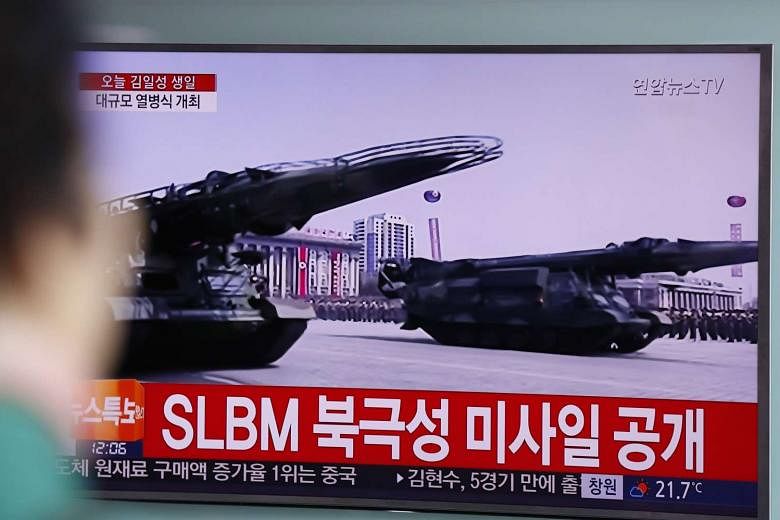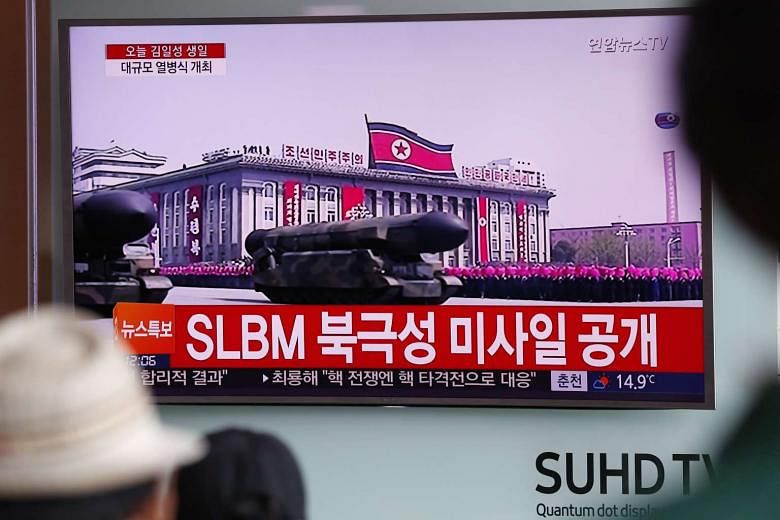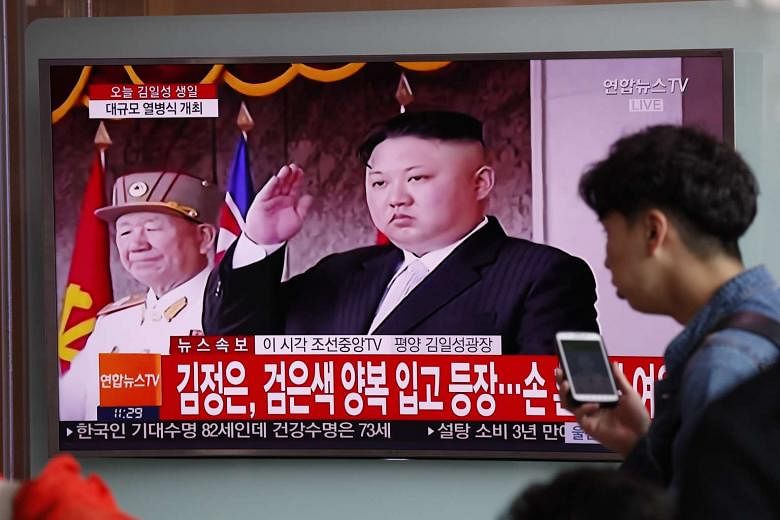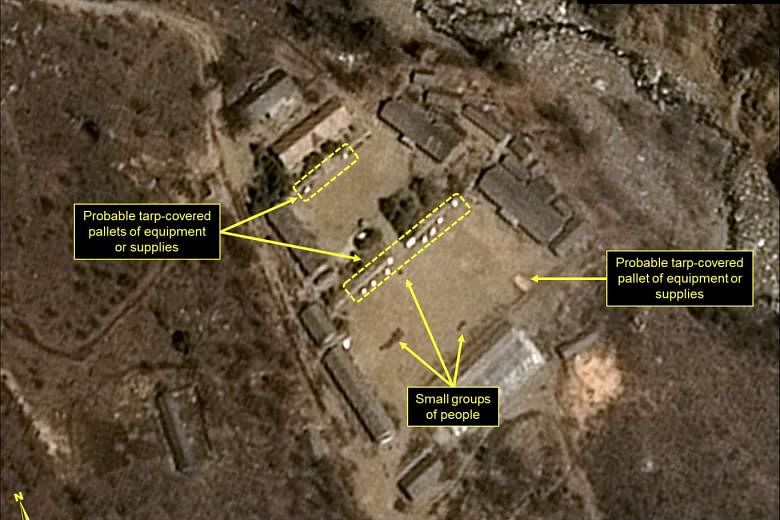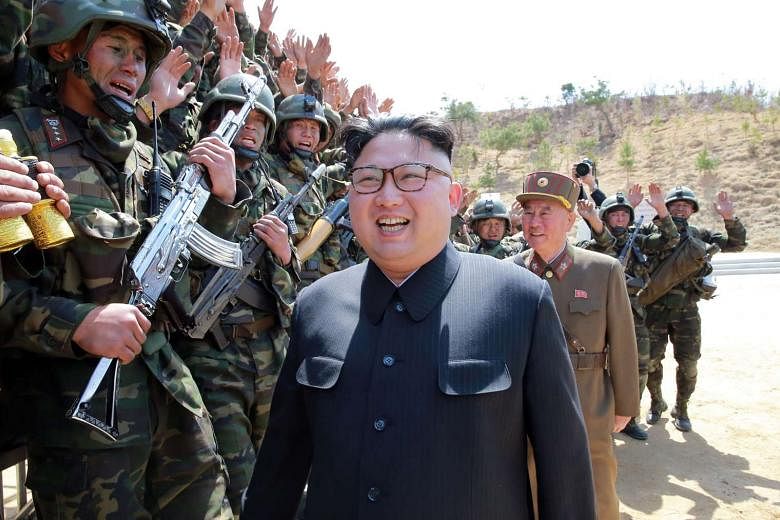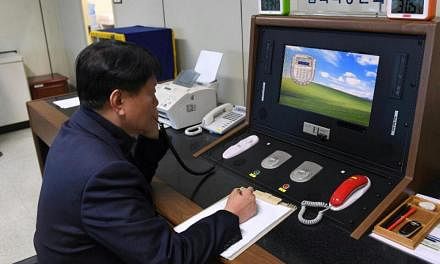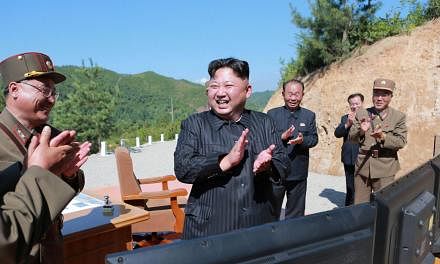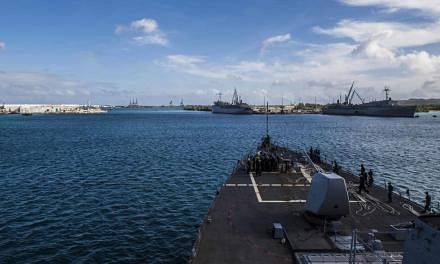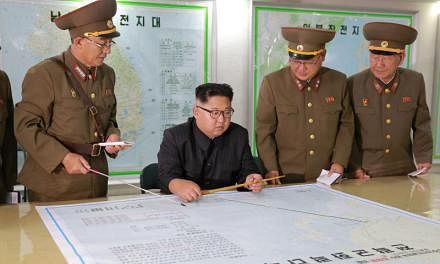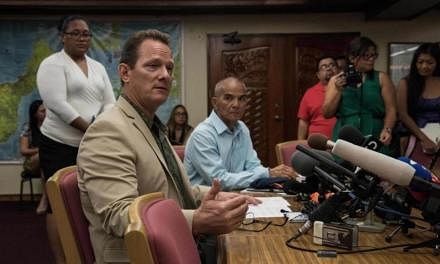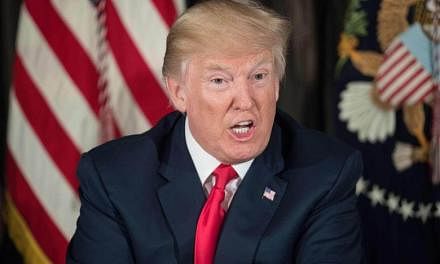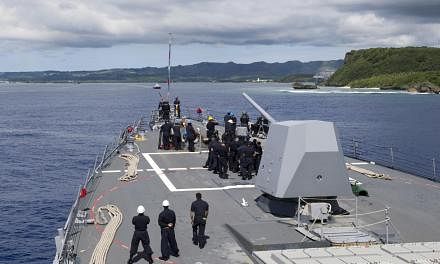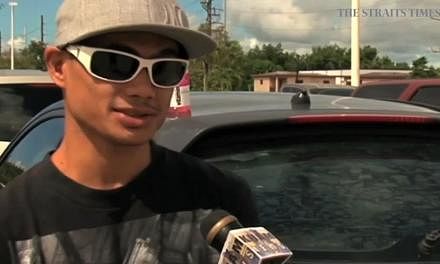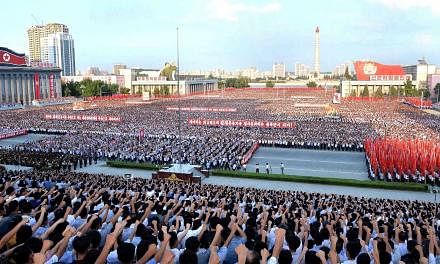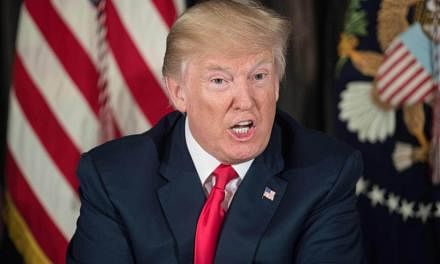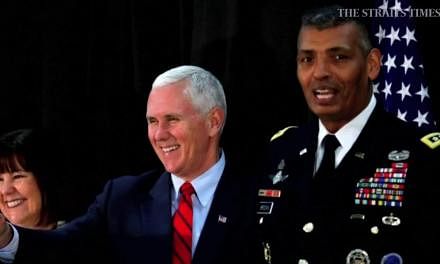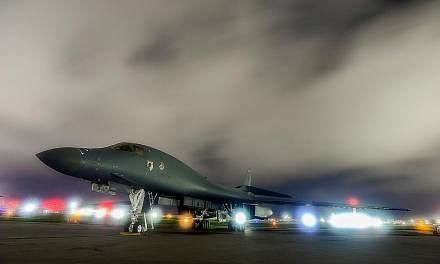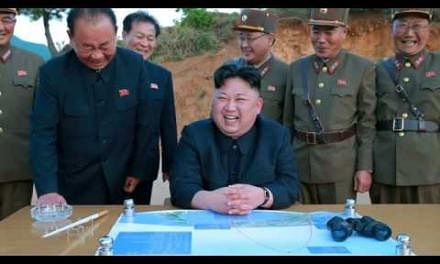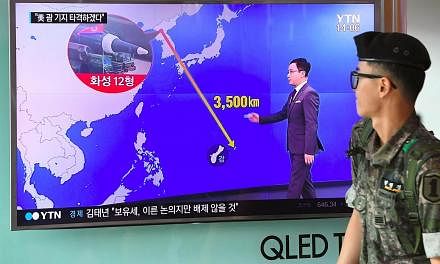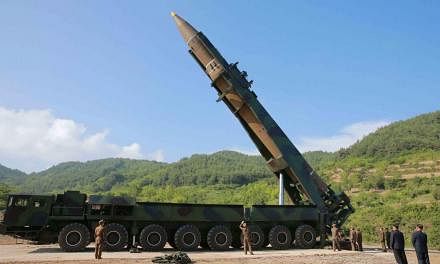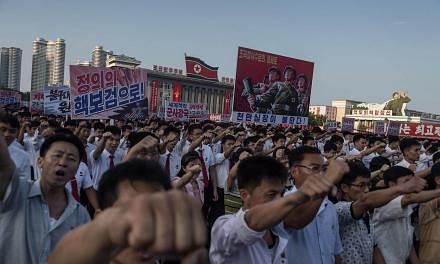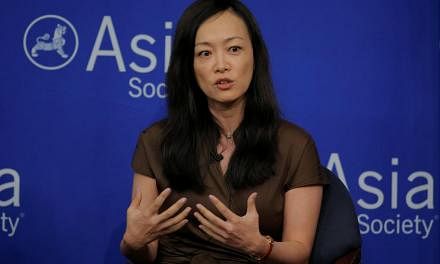SEOUL (Reuters, AFP) - North Korea is prepared to respond to any nuclear attack by the United States in kind, the country's No. 2 official said Saturday (April 15), as the regime displayed what appeared to be new long-range and submarine-based missiles on the 105th birth anniversary of its founding father, Kim Il Sung.
"We're prepared to respond to an all-out war with an all-out war and we are ready to hit back with nuclear attacks of our own style against any nuclear attacks," Choe Ryong Hae said in a speech at a ceremony before a large military parade started, which was broadcast live by the North's Korean Central TV.
A US Navy attack on a Syrian airfield this month raised questions about US President Donald Trump's plans for reclusive North Korea, which has conducted several missile and nuclear tests in defiance of UN and unilateral sanctions, regularly threatening to destroy the United States.
North Korean leader Kim Jong Un, Kim Il Sung's grandson, looking relaxed in a dark suit and laughing with aides, oversaw the huge parade on the "Day of the Sun" at Pyongyang's main Kim Il Sung Square.
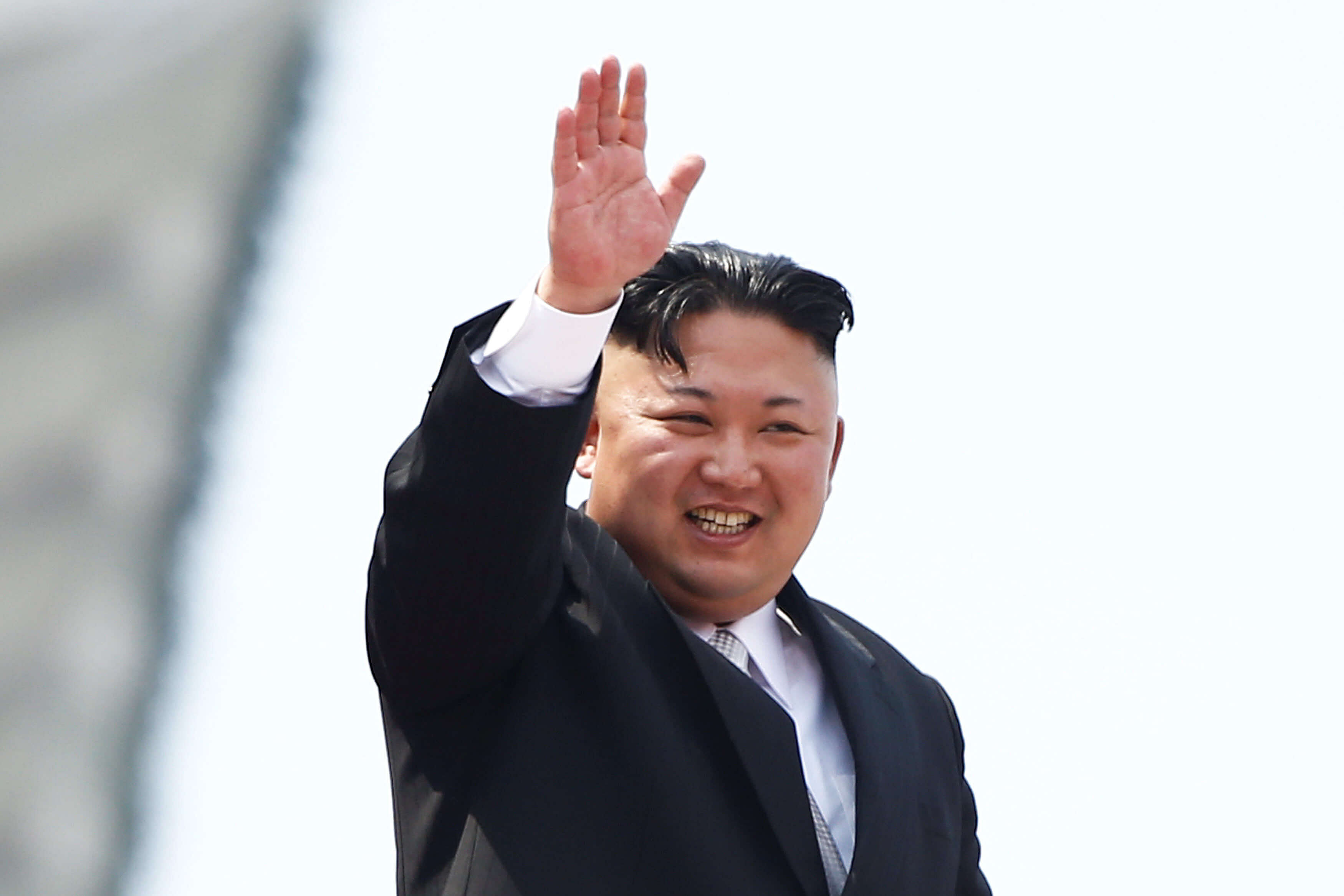
Goose-stepping soldiers and marching bands filled the square, next to the Taedonggang River that flows through Pyongyang, in the hazy spring sunshine, followed by tanks, multiple launch rocket systems and other weapons.
Single-engine propeller-powered planes flew in a 105 formation overhead.
Unlike at some previous parades attended by Kim, there did not appear to be any a senior Chinese official in attendance. China is North Korea's lone major ally but has spoken out against North Korea's missile and nuclear tests and supported UN sanctions.
The North has said it has developed and would launch a missile that can strike the mainland United States but officials and experts believe it is some time away from mastering all the necessary technology.
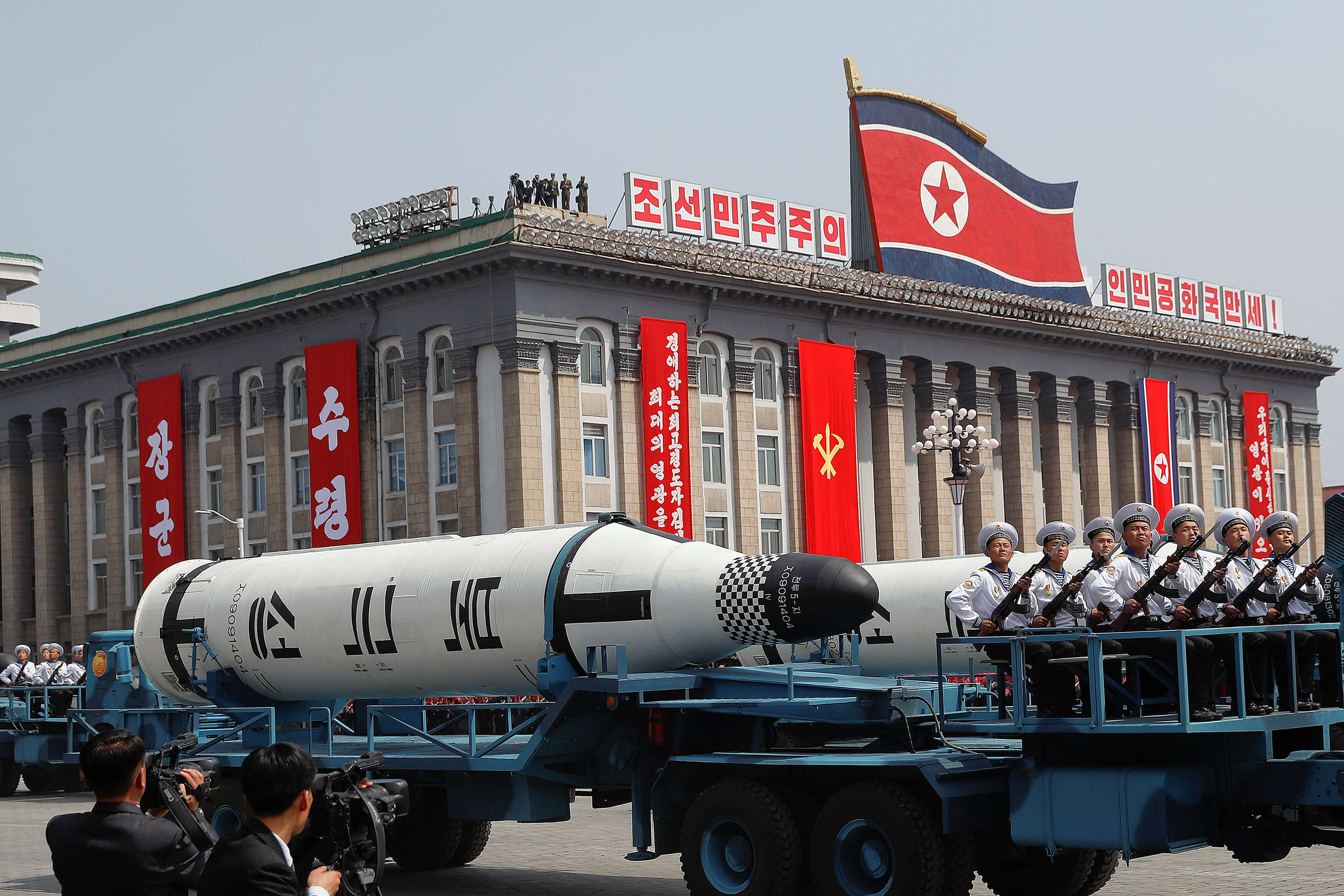
Weapons analysts said they believed some of the missiles on display were new types of intercontinental ballistic missiles (ICBM).
North Korea showed two new kinds of ICBM enclosed in canister launchers mounted on the back of trucks, suggesting Pyongyang was working towards a "new concept" of ICBM, said Melissa Hanham, a senior research associate at the US-based Middlebury Institute of International Studies at Monterey, California.
"However, North Korea has a habit of showing off new concepts in parades before they ever test or launch them,"Hanham said. "It is still early days for these missile designs".
Pyongyang is under multiple sets of United Nations sanctions over its atomic and ballistic missile programmes, and has ambitions to build a rocket capable of delivering a warhead to the US mainland - something US President Donald Trump has vowed "won't happen".
It has carried out five nuclear tests - two of them last year - and multiple missile launches, one of which saw three rockets come down in waters provocatively close to Japan last month.
Speculation that it could conduct a sixth blast in the coming days to coincide with the anniversary has reached fever pitch, with specialist US website 38North describing its Punggye-ri test site as "primed and ready" and White House officials saying military options were "already being assessed".
Trump has dispatched the aircraft carrier USS Carl Vinson and an accompanying battle group to the Korean peninsula.
"We are sending an armada. Very powerful," Trump told the Fox Business Network. "He is doing the wrong thing," he added of
Kim. "He's making a big mistake."
China, the North's sole major ally, and Russia have both urged restraint, with Beijing's Foreign Minister Wang Yi warning Friday that "conflict could break out at any moment".
The North has reiterated its constant refrain that it is ready for "war" with the US. Its army vowed Friday a "merciless" response to any US provocation but diplomats in Pyongyang are more sanguine, pointing out that the North raises its rhetoric every spring, when Washington and Seoul hold annual joint exercises that it views as preparations for invasion.
None of the North's five previous nuclear tests has taken place in the month of April.
'Tough message'
Military specialists keep a close eye on Pyongyang's military parades for clues about developments in the North's capabilities. Jeffrey Lewis, of the Middlebury Institute of International Studies said he was looking out for "the possibility of a new ICBM", adding: "There may be some surprises."
The 1950-53 Korean War ended in an armistice rather than a peace treaty and Pyongyang says that it needs nuclear weapons to defend itself against a possible US invasion.
The US cruise missile strike on Syria vindicated its stance, it said last weekend. According to diplomats, North Korean officials have described the US president as "unpredictable" and been unnerved by his comments and actions.
Pyongyang could use the parade as a show of strength in preference to a nuclear test, analysts said. It wanted to send "a tough message to the United States in response to the Trump administration's recent rhetoric and the military steps the United States has taken", said Evans Revere of the Brookings Institution in Washington.
Another missile launch or nuclear test "can't be ruled out", he said, but the Syria strike and Washington's implied threats "may give Pyongyang some pause".
"A parade is a highly visible but non-kinetic way of showing off capabilities," he told AFP.
The North is aiming its message at China as well as the US, analysts say. Beijing has made clear its frustration with Pyongyang's stubbornness but its priority remains preventing any instability on its doorstep, and it has been unnerved by the sabre-rattling.
Pyongyang was "upset with all of its neighbours", said Bruce Bennett of the Rand Organisation and Kim needs to "demonstrate defiance".
North Korean culture is that its leaders "are supposed to reign by power", he said. "He cannot back down without looking weak and thereby facing the prospect of a coup."
